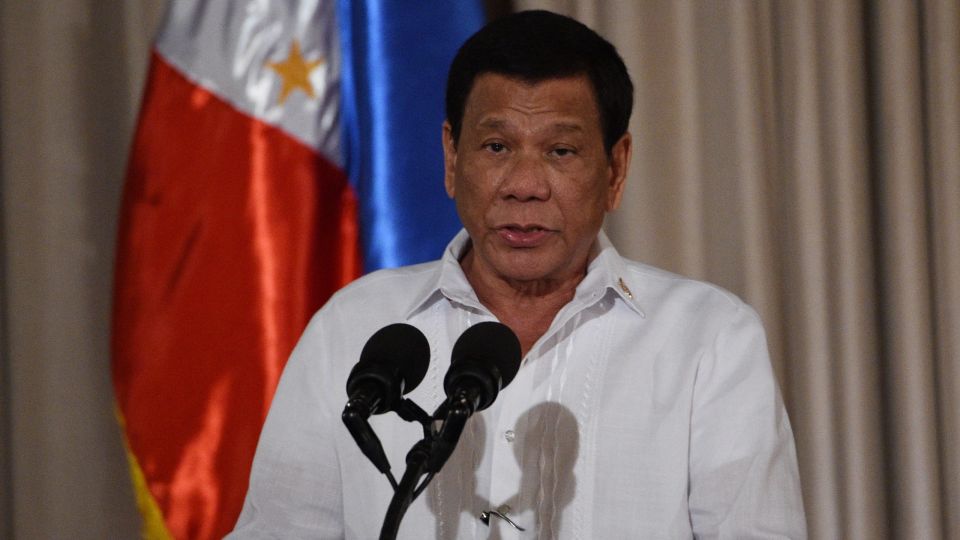September 3, 2018
President Rodrigo Duterte is eyeing an arms deal with Israel as he tries to lessen the Philippines’ reliance on US arms.
President Duterte was expected to arrive in Israel early on Monday in pursuit of a policy moving the Philippines away from its longtime reliance on the United States for military hardware and backing.
The President’s four-day official visit to Israel is the first by a Philippine leader in more than 60 years of diplomatic ties between the two nations, even though their links go back to Filipinos sheltering Jews during the Holocaust.
The President, accompanied by a large entourage that included military and police officials, will sit down with Prime Minister Benjamin Netanyahu and hold an event with thousands of Filipinos working in Israel.
Fulfilment of a promise
His visit is a fulfilment of a promise to visit Filipinos here, who voted for him in the 2016 presidential election, said Philippine Ambassador to Israel Nathaniel Imperial.
“[The President] was supposed to come in May last year but because of the Marawi incident, he had to postpone his overseas travel,” Imperial explained in a radio interview.
He was referring to the five-month siege of Marawi by local terrorists who had pledged allegiance to the Islamic State jihadi group in the Middle East.
Before leaving for Tel Aviv on Sunday afternoon, Mr. Duterte told a crowd at Ninoy Aquino International Airport in Manila that he was visiting Israel on the invitation of Netanyahu and Jordan on the invitation of King Abdullah II.
“My schedule will be full. I shall seek to reaffirm the ties between our peoples made more significant by a meaningful shared history,” Mr. Duterte said.
Protection for OFWs
He promised to work for the protection and welfare of 28,000 Filipinos working in Israel and 48,000 in Jordan.
“You know, without mentioning anything, there’s a volatile situation there and we have to be sure that our citizens are fully protected,” he said.
President Duterte’s first event in Israel was a meeting with the Filipino community on Sunday night.
“We assign great importance to this visit, which symbolizes the strong, warm ties between our two peoples,” Israel’s foreign ministry said in a statement.
Besides coming to the aid of Jews during the Holocaust, the Philippines was also the only Asian nation that voted in the United Nations for the Partition plan that led to the birth of Israel in 1948.
Shopping for arms
President Duterte has pivoted the Philippines away from its traditional ally, the United States, and toward warmer diplomatic and business ties with China and Russia.
He will look at Israeli military hardware for possible acquisitions for the Armed Forces of the Philippines and the Philippine National Police.
The United States and Canada have both had military hardware deals fall apart with the Philippines due to concerns over Mr. Duterte’s war on drugs.
But so far, sales with Israel have gone smoothly.
Among top arms dealers
“[The visit] is for President Duterte to look for an alternative market for . . . weapons for our Armed Forces as well as the police,” Henelito Sevilla, an international relations expert at the University of the Philippines, told Agence France-Presse (AFP).
Israel is among the world’s top arms dealers, with nearly 60 percent of its defense exports going to the Asia-Pacific region, according to Israeli defense ministry data.
The Philippines emerged as a significant new customer in 2017 for Israel, with sales of radar and antitank equipment worth $21 million.
There could be far bigger deals on the way as Manila plans a multibillion-dollar overhaul of its arsenal.
Mr. Duterte has been dismissive of American sales overtures, saying he does not need US fighter jets or submarines to fight communist insurgents but attack helicopters.
Large entourage
Traveling with the President are Executive Secretary Salvador Medialdea, Foreign Secretary Alan Peter Cayetano, Labor Secretary Silvestre Bello III, Defense Secretary Delfin Lorenzana, Trade Secretary Ramon Lopez, Environment Secretary Roy Cimatu, Transportation Secretary Arthur Tugade, Energy Secretary Alfonso Cusi, National Security Adviser Hermogenes Esperon, presidential spokesperson Harry Roque, Special Assistant to the President Christopher Go, Presidential Political Adviser Francis Tolentino, acting Interior Secretary Eduardo Año and the Philippine Coast Guard’s chief, Rear Adm. Elson Hermogino.
Also travelling with the President is his daughter, Davao City Mayor Sara Duterte, Sen. Richard Gordon, and 150 Filipino businessmen.
President Duterte will sit down with Netanyahu on Monday and with Israeli President Reuven Rivlin on Tuesday.
He will visit the Yad Vashem Holocaust Memorial Center, a museum dedicated to 6 million Jews who perished in Nazi concentration camps under Adolf Hitler in World War II.
The President is expected to witness the signing of up to 15 agreements, including defense, labor and science and technology, at the King David Hotel on Tuesday.
Before leaving for Jordan on Wednesday, the President will lay a wreath at the Open Doors Monument at Holocaust Memorial Park.
Manila and Tel Aviv have dedicated the monument in the city of Rishon Lezion “to commemorate the humanitarian assistance provided by the Philippines to Jewish refugees escaping the Holocaust in the late 1930s,” Imperial said.
“This monument is a manifestation of this enduring friendship and the shared history between the Philippines and Israel,” he said.


